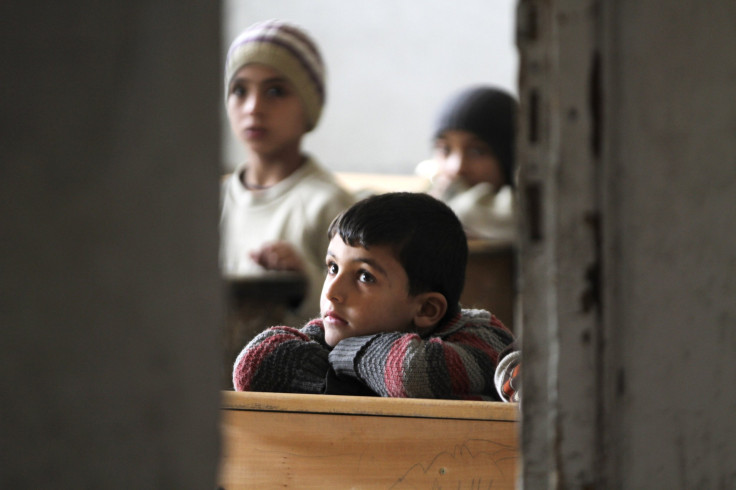Children In War-Torn Nations Need $2.3B To Go To School: Unesco

At least 34 million children currently living in conflict-hit nations are not attending educational institutions and it would cost $2.3 billion to send them to school, according to a new report by the United Nations Educational, Scientific and Cultural Organization (Unesco). The U.N. agency also warned that the current humanitarian aid for education is 10 times less than the required amount.
“Present targets are hugely insufficient and diverting attention from the true needs of children and youth on the ground,” Aaron Benavot, director of Unesco’s Education For All Global Monitoring Report, said in a statement released Monday. Globally, a total of 58 million children are currently out of school and another 100 million children have not completed primary education.
The report found that 36 percent of the world’s out-of-school children live in conflict-affected countries, up from 30 percent in 1999.
“The world’s poorest children are four times more likely not to go to school than the world’s richest children, and five times more likely not to complete primary school,” Irina Bokova, director-general of Unesco, said, in a foreword to the report. “Conflict remains a steep barrier, with a high and growing proportion of out-of-school children living in conflict zones.”
According to the report, which analyzed how far nations had advanced toward the global education goals set in 2000, progress has been, at best, patchy. In 2014, for instance, education received barely 2 percent of humanitarian aid, half of Unesco’s 4 percent target. Also, more than half of the available funds for education went to just 15 out of 342 appeals between 2000 and 2014.
Moreover, some of the smaller countries such as Burkina Faso, Niger, South Sudan and Sudan that have more than 800,000 children out of school are not only affected by conflict, but are also extremely poor.
In the report, the U.N. agency proposed an overhaul of the method of allocation of global emergency education funds, calling for “additional, flexible and predictable” resources for education, especially in conflict-affected nations.
“In 2013, 21 million people in conflict-affected zones were identified as requiring education support. Just eight million were included in appeals,” Unesco said in the statement. “Of those, just three million received assistance once funding was distributed -- leaving 18 million without any help at all.”
© Copyright IBTimes 2025. All rights reserved.






















